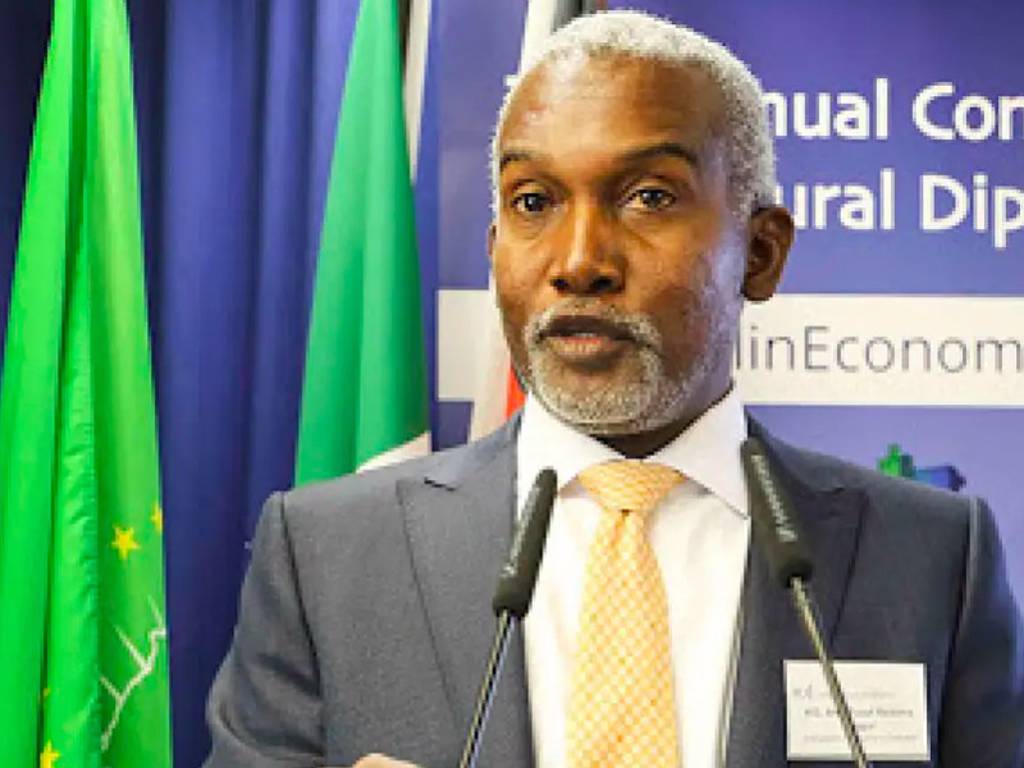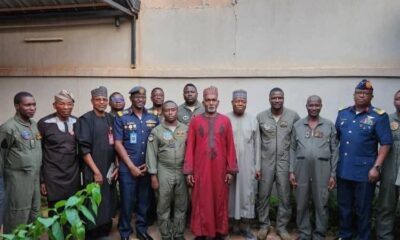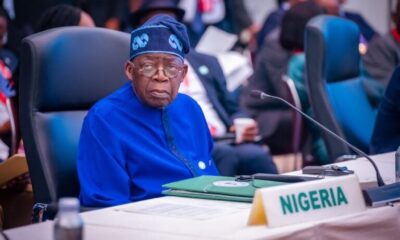FEATURED
UPDATED: Amid US Threat: We’re Not Shying Away from Diplomatic Engagements – Tuggar

By Joe Ogbodu
The Minister of Foreign Affairs, Ambassador Yusuf Maitama Tuggar, has said that the federal government’s review of its foreign missions is aimed at optimizing diplomatic resources rather than retreat from international engagements, expressing commitment to constructive engagement and strategic diplomacy.
He said the move is geared to resolve misunderstandings and strengthen bilateral relations with global partners.
He spoke in an exclusive interview with BIGPEN NIGERIA (https://bigpenngr.com) at the heels of the heightened diplomatic tensions between Nigeria and the United States over recent allegations of genocide on Christians by suspected terrorists in the northern part of the country.
Tuggar, responded to queries over Nigeria’s diplomatic strategies, including the appointment of diaspora Nigerians as ambassadors and the potential closure or rationalization of foreign missions.
In an interview, Tuggar, reaffirmed Nigeria’s commitment to combating extremism while defending its sovereignty and diplomatic integrity.
He highlighted Nigeria’s recognition of its diaspora as a vital national asset, noting that millions of Nigerians are excelling globally in various fields. He expressed openness to involving qualified diaspora Nigerians more formally in Nigeria’s diplomatic efforts, including ambassadorial appointments, provided they meet criteria of competence and patriotism.
On the issue of Nigeria’s foreign missions, Tuggar clarified that the government’s review is aimed at optimizing diplomatic resources rather than retreat from international engagements.
“Rationalization of missions is about efficiency and strategic realignment,” he stated, emphasizing a comprehensive audit to assess the cost-benefit profile of each mission and ensure they contribute effectively to trade, investment, and diplomatic objectives.
Addressing Nigeria’s broader foreign policy initiatives, Tuggar outlined measures under President Bola Tinubu’s administration to stabilize the economy, revitalize the foreign service through digital transformation, and strengthen partnerships across continents. He stressed that these efforts aim to rebuild Nigeria’s credibility and capacity on the global stage.
The Foreign Minister also reflected on his legacy, emphasizing institutional strength, digital diplomacy, and Nigeria’s leadership in international affairs as key priorities. “My goal is to leave a foreign service that is more professional, strategic, and citizen-focused,” he said.
Below is the interview:
On appointing members of the Nigerian Diaspora as Ambassadors
Nigeria’s Diaspora is one of our greatest assets. We have millions of citizens excelling in every sphere academia, science, technology, business, and the creative industries who continue to project Nigeria’s image positively across the world.
As someone who has served abroad, I understand their potential for advancing our national interests. Under the leadership of President Bola Ahmed Tinubu, our foreign policy is anchored on the 4Ds Democracy, Development, Demography, and Diaspora.
We are therefore open to innovative approaches, including exploring how qualified Diaspora Nigerians can contribute more formally to diplomacy, whether through advisory roles, secondments, or, in the future, ambassadorial positions where host-country laws and our own regulations permit. What matters most is competence, patriotism, and alignment with Nigeria’s strategic objectives.
On the possibility of closing redundant missions
Rationalization of missions is not about retreat; it is about efficiency and strategic realignment. Every responsible government must periodically review its diplomatic footprint to ensure that our limited resources yield maximum results.
What we are doing is a comprehensive audit of all missions looking at their cost-benefit profile, strategic importance, and contribution to Nigeria’s economic diplomacy. In some cases, it may make sense to consolidate; in others, to strengthen and expand. The guiding principle is not reduction, but optimization ensuring that every mission delivers tangible value in trade, investment, consular services, and multilateral engagement.
On government measures to address the nation’s current challenges
We are under no illusion about the difficulties Nigerians face. However, under President Tinubu’s administration, we have moved decisively to lay the foundation for sustainable recovery and reform.
Some of the steps include:
Economic stabilization measures that address forex distortions and attract foreign direct investment.
Revitalization of the foreign policy apparatus, including professional training, digital transformation of the Ministry, and policy coherence under the 4D Doctrine.
Enhanced consular protection for Nigerians abroad, with improved response mechanisms at missions.
Re-engagement with strategic partners across Africa, Europe, the Americas, and Asia to open new avenues for cooperation in infrastructure, energy, and human capital.
These efforts may take time to bear fruit, but the direction is clear: Nigeria is rebuilding credibility, confidence, and capacity both at home and abroad.
On what he wishes to be remembered for as Minister of Foreign Affairs
Legacy, for me, is not about personal glory. It is about institutions. If, by the end of my tenure, the Ministry of Foreign Affairs is stronger, more professional, and more future-ready anchored in digital diplomacy, strategic autonomy, and service to citizens then I would consider that success.
I want to be remembered as the Minister who helped redefine Nigeria’s diplomacy for the 21st century, restored the morale of our foreign service, and projected a Nigeria that leads by example principled, confident, and respected in the comity of nations.



















